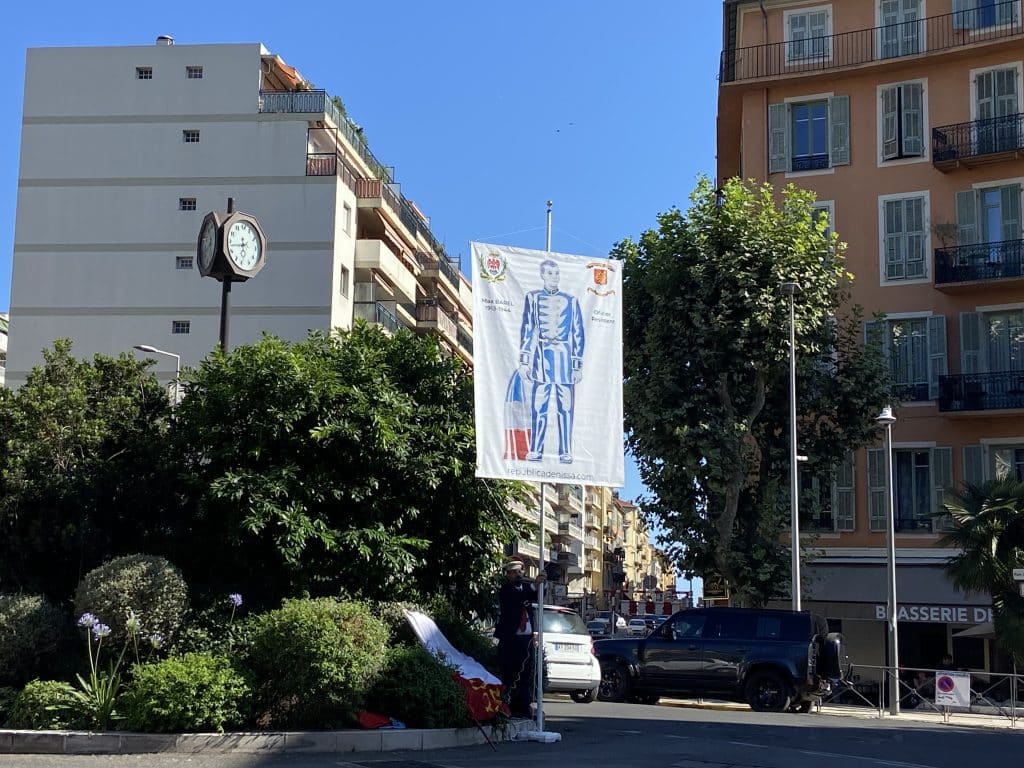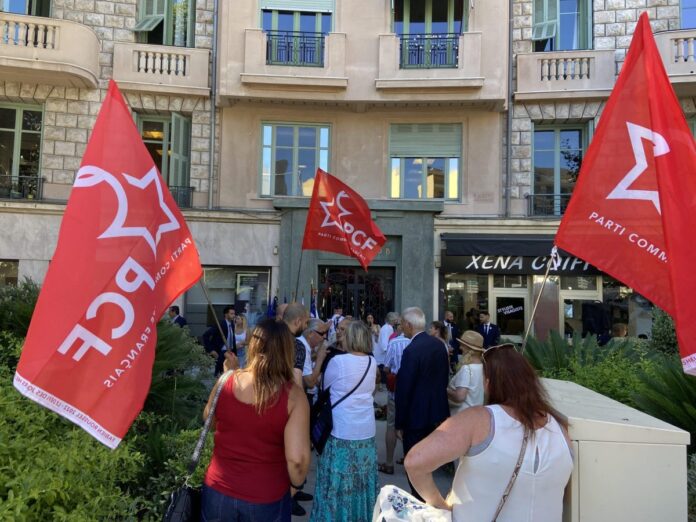This Friday, July 11, a tribute ceremony took place in the heart of Barla Street to honor a figure of the Resistance, Max Barel.
After Garibaldi (July 4), Torrin and Grassi (July 7), it is now the name Barel that is being glorified. With the first name Max, he left his mark on Nice through actions driven by an iron will to liberate his country from the oppressor.
One of the many heroes of Nice
It is at 39 Barla Street, in front of Max Barel’s residence, that the tribute takes place. A handful of locals from Nice, including members of the French Communist Party (PCF), made it a point to be present. This evening, Max Barel’s portrait is displayed in the middle of the street’s roundabout, reminding everyone that a man once stood against oppression in the name of freedom.
Marie-Christine Fix, municipal councilor delegated to combatant struggles, representing Christian Estrosi, is responsible for delivering a short speech: “Max Barel was not just a considerate individual, a sincere patriot, or a brave resistant. He was a man driven by deeply humanistic ideals. Throughout his life, he defended social justice, human dignity, and freedom. These convictions led him to resist, not out of hatred, but out of duty.”
Although disrupted by the roaring engines, she continues: “To
his memory, we owe respect, loyalty, and transmittance. I will end with these words that perfectly fit our hero and resistant: when a man is confronted by the will to accept a truth that is not his own, when he is thrown into a dungeon for refusing to submit, he knows what freedom means.” An unwavering refusal of injustice. For Nice, Max Barel symbolizes the absolute rejection of oppression.

Resistant until death
Max Barel was born on July 4, 1913, in Menton. After his parents’ divorce, he was raised by his father, Virgile Barel, a political figure in Nice and a communist deputy. A student at Menton high school, then in Nice in the mathematics section, Max showed deep commitment early on. At just 15, he joined the Young Communists.
In 1933, he moved to Paris and entered the École Polytechnique. There, he founded the first communist cell and became an active figure in antifascist movements. Two years later, he married Yvette Seyfarth in Nice, with whom he would have two children.
An artillery officer during the war, he was captured several times, escaping each time, and eventually refused to swear allegiance to the Vichy regime. A talented engineer, he designed sabotage devices. On July 6, 1944, he was arrested by militiamen in Lyon. Imprisoned, he was subjected to extreme torture: beatings, ice baths, scalding burns… He even attempted to take his own life to avoid betraying his comrades. He died on July 11, 1944, at 31, without ever having spoken.


